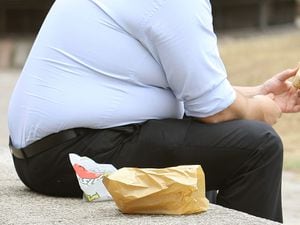Shropshire Star comment: Balance is vital food for thought
You only have to look around to appreciate that 21st century Salopians, in common with much of the rest of Britain’s population, are not eating properly.

This is a bloated generation which is on the edge of an obesity crisis.
Often this is a result of individual choices about lifestyle and eating habits – people leading a sedentary existence, watching television and eating all those things that they know they probably shouldn’t, but which they like.
There is another shocking side to Britain’s dietary crisis. According to NHS data, there has been a big rise in the numbers of people having to go into hospital because of malnutrition.
While objectively the figures are low, the fact that anybody in a modern, Western nation with all its supposed safety nets could be suffering with malnutrition is a black mark against our allegedly compassionate society.
Locally the trend has been for a significant rise in cases, and this is also reflected nationally across England.
Shropshire has also seen cases of diet-related diseases, rickets and scurvy.
The Joseph Rowntree Foundation, an anti-poverty charity, is unsurprisingly linking the rise in malnutrition and diet-related diseases to poverty.
However, we should be cautious about assuming that all malnutrition is a consequence of poverty.
And we should also bear in mind that although malnutrition conjures up imagery of thin-as-a-rake people who are not getting enough food, the NHS uses the term in the sense of poor nutrition. In other words, malnutrition covers both the undernourished, and those who are overnourished, getting more nutrients than they need.
Generally, undernutrition is more common with those with long-term health problems that affect appetite, the old, the socially isolated, the less mobile, and of course the poor.
If the underlying cause is not poverty, but bad diet choices, then easing the poverty will not automatically help. It has to be accompanied by education on diet.
The best way to prevent malnutrition is to eat a healthy, balanced diet.





